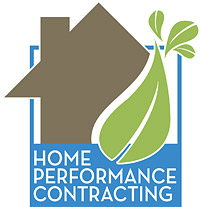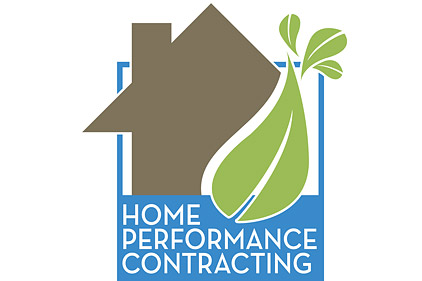In my last article, we talked about my firm belief that home performance contracting (HPC) is the next big game-changer for residential HVAC contractors — and that the game is changing right now. This article will focus on the training, skillsets, and specialized tools needed to become a successful home performance contractor. I will also offer some insight as to how to decide whether to go it alone or to invest in one of the several franchises or membership organizations that are specifically designed to assist and support contractors in getting into HPC.
 Business Factors
Business Factors
There are a number of important factors in the decision-making process toward becoming an HPC contractor. Here I have summarized the top six areas I believe a contractor must focus on to successfully enter the HPC market.
Business Planning: In order to be successful in HPC, you must develop and implement a plan that includes the following: marketing and advertising, capital investment, testing and analysis, sales systems, expert installation procedures, thorough test-out and follow-up processes, and, in some cases, third party verification of the job results. Unlike most HVAC installations, many HPC improvements qualify for special state- or utility-based loans and/or rebate programs.
Performance Standards and Accreditation: These states and utilities want evidence that the job was installed properly and will provide the energy savings predicted in the initial testing and analysis. In fact, many of these providers of financial incentives rely on some sort of standards and/or accreditation to ensure that their residential energy goals are achieved. Currently, most agencies and incentive program sponsors utilize the services of the Building Performance Institute (BPI) to provide standards and accreditation for both individuals and contracting firms. However, there are strong indications that in the near future, the HVAC industry may put forth its own set of standards, training and certification, and quality assurance processes.
In addition, in certain states, there are other accreditation providers that may be acceptable to the agencies and program sponsors. Whatever route you take, be assured that whole-house evaluation, testing, diagnostic, and installation accreditation is a must-have in the HPC industry.
Labor Needs: In addition to certification, there is a significant amount of hiring and training that must be done before implementing HPC. Experience has shown that, with the possible exception of the sales process, you cannot count on your HVAC personnel to implement the home performance side of your business on their own.
HPC involves different disciplines requiring different skillsets. Try to imagine an HVAC installer or service tech laying insulation in an attic or caulking leaks around windows and doors. Get the picture?
So, you need to recruit, test, background check, hire, and train new people to accomplish your HPC goals. Again, you can either do this training yourself or rely on a franchise or membership group to do it for you. In fact, some of these groups will even do the recruiting and aptitude testing for their members.
Capital Investment: Once you have the right certifications and well-trained employees, you will need to make a capital investment in a number of diagnostic tools. You may already own some of these tools, although many are not typically used in an HVAC operation. Most of these tools are readily available but some tend to be on the expensive side and may require training before use. Here are the basic tools that are necessary for startup: blower door, digital monometer, duct blaster, combustion and CO analyzer, ambient CO monitor, gas leak detector, infrared camera, digital camera, digital sling psychrometer, amp clamp, and energy modeling software acceptable to your local agencies.
A cursory check of the Internet shows that, assuming you need to purchase all of these items, the total price will be about $15,750. This amount does not include the energy modeling software. Since this is a sizable investment, some franchise operations offer significant discounts as well as financing opportunities to their members for the purchase of these items. This potential savings should be considered when making your decision as to how you should proceed.
Lead Generation: Next, you must develop marketing and advertising programs that will capture the attention of potential customers. At the same time, everyone in your organization needs to be educated on the benefits of HPC to your customers, your company and, most of all, to your employees. Why? Because during the initial phase, the vast majority of your prospects are going to come from your existing customer base. Without the excitement and active support of your employee team, securing business will be much more difficult. With their blessing and enthusiasm, you will be amazed at how quickly you will begin to build a significant new revenue stream and how quickly it will grow.
Process Development: Finally, you need to develop systems, processes, procedures, and pricing that ensure that your customers are receiving the promised value and you are providing that value profitably. All of these involve the coordination of lead generation, analyst scheduling, energy modeling, energy savings report development, sales presentation, job installation, test-out and quality assurance verification. In areas where incentives and rebates are offered, almost all of these steps must be confirmed in a form satisfactory to the agencies providing the incentives.
Franchise Considerations
Although each of these procedures differs from HVAC in detail and requires a unique set of checklists, they basically follow the same timeline as would a well-managed HVAC replacement job. So, the question becomes: Is the development of all of these procedures the best use of your company’s time? Or does it make more sense to adopt procedures already successfully proven in other HPC contracting firms?
Whether you go it alone or join an organization, you will need to accomplish everything mentioned in this article if you are going to become a successful home performance contractor.
From my perspective, I strongly prefer the “join a proven organization” approach and in my next article, I will examine the various offerings of these franchise and membership organizations. Yes, joining an organization requires a financial commitment. However, if you pick the right one for your company, you will save a huge amount of development time (and money).
Buying into proven systems and procedures allows you to be up and running in a fraction of the time it would take if you did it on your own. You will also save tons of money by eliminating the need to learn from your mistakes. You will always have someone to rely on for answers to technical questions. Most importantly, you will have satisfied customers from your very first installation. In other words, teaming with the experts in HPC will save you time and money — offering you the opportunity to recognize a sound return on your investment.
Publication date: 10/31/2011


Report Abusive Comment